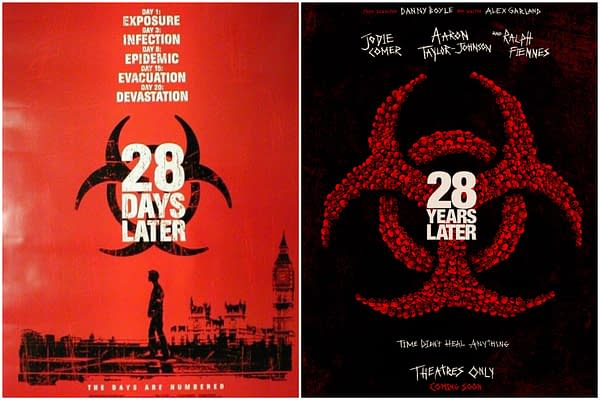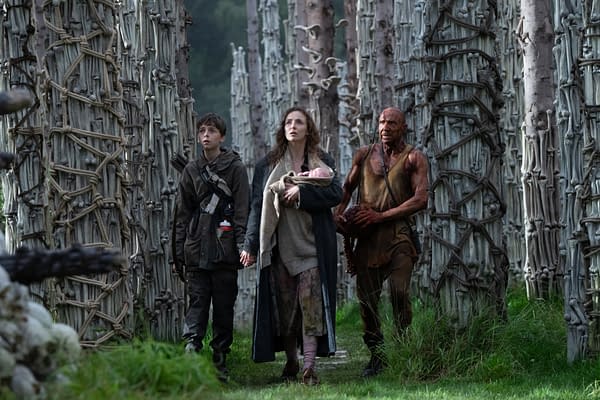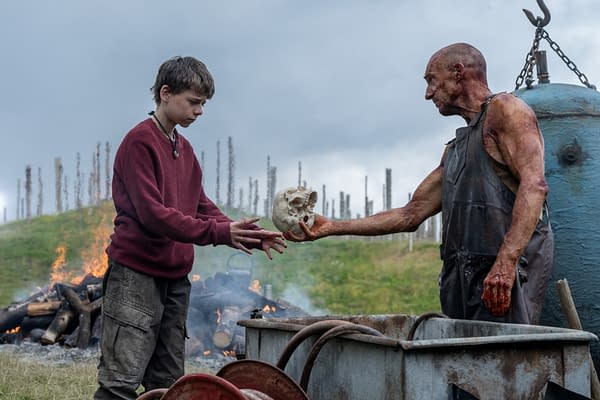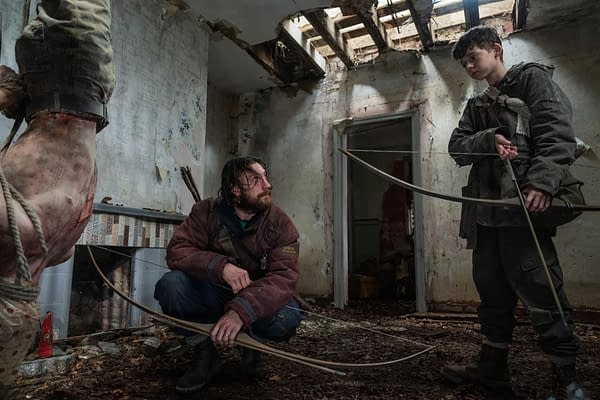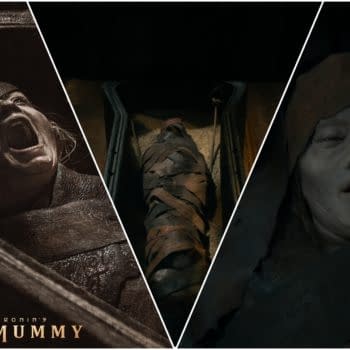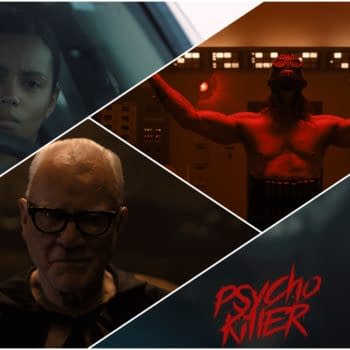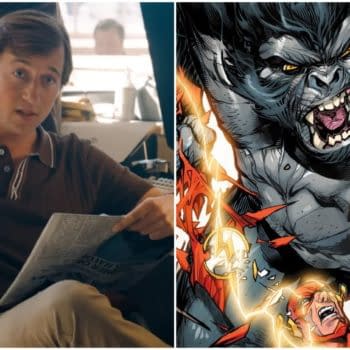Posted in: Exclusive, Movies, Sony | Tagged: 28 Days Later, 28 years later, alex garland
28 Years Later: Alex Garland on Fear & the Fractured State of Humanity
28 Years Later writer Alex Garland explains what aspects of the current political and cultural climate brought them back to this world.
Article Summary
- 28 Years Later explores why the current political and cultural climate made now the right time for a sequel
- Writer Alex Garland discusses shifting from progressive to regressive societal values as key story inspiration
- The film contrasts pre- and post-virus generations, focusing on cultural rather than generational divides
- Director Danny Boyle and Garland emphasize horror's political layers and deeper themes reflected in the new film
28 Days Later is often cited as a movie that really changed the way people approached the zombie genre, but both that film and 28 Weeks Later have always been more than the sum of their parts. Director Danny Boyle and writer Alex Garland have always brought their views on politics and culture to their films, and 28 Years Later is no different. The world we were living in when the first two movies were released and the one we live in now couldn't be more different. Unlike other zombie films, the people in 28 Years Later are sick, not undead, and considering what we went through in 2020, the concept of a virus decimating the world hits a bit differently. Now seems like the obvious time, but there have been so many major political and cultural shifts that have occurred in the subsequent twenty years, and people have been asking for a third movie for just as long. So when we got the chance to speak to Boyle and Garland about the film, we asked what about the current political and cultural moment inspired them to return to this world.
"Just speaking for myself, on the political front, I would say that a lot of the time I was growing up, life was defined by a concept of progression and looking forward, and there being some very important lessons that had been learned and were so important that they seemed unforgettable," Garland said. "And then over the last 10 to 15 years, a kind of concept of regression has really taken hold of looking to the past and values of the past or just a conceptualization of the past and how it is that progressive thinking has been replaced in an attractive way, at least in many respects, by regressive thinking, and then what form that regressive thinking takes.
"And to me, it seemed pretty obvious, or at least alarming, that one of the features was amnesia," Garland continued. "So there'd be all sorts of things about the past that were simply forgotten or excised from memory for one reason or another. But it could be just as simple as forgotten. The lesson did not stick around. Or the memory could be very selective. So you'd remember one kind of thing, but not the kind of things that came along with it. Or it would be misremembered. So something would be remembered from the past that didn't actually really exist. And because Danny and I are both old enough to have a memory of the past, as well as a sense of the past that is being misremembered or misrepresented, that certainly played into my thinking within this story. There's actually a speech in the second movie that nails this. Slightly more clearly, but in a sort of ironic way. But yes, if you're specifically asking politically, it would be that."
- L-R: Photo Courtesy of Sony Pictures © 2003 CTMG, Inc. All Rights Reserved. | Photo Courtesy of Sony Pictures © 2024 CTMG, Inc. All Rights Reserved.
- Spike (Alfie Williams), Isla (Jodie Comer) and Dr. Kelson (Ralph Fiennes) in Columbia Pictures' 28 YEARS LATER. Photo By Miya Mizuno © 2024 CTMG, Inc. All Rights Reserved.
- Dr. Kelson (Ralph Fiennes) and Spike (Alfie Williams) in Columbia Pictures' 28 YEARS LATER. Photo By Miya Mizuno © 2025 CTMG, Inc. All Rights Reserved.
- Jamie (Aaron Taylor-Johnson) and his son Spike (Alfie Williams) in Columbia Pictures' 28 YEARS LATER. Photo By Miya Mizuno © 2024 CTMG, Inc. All Rights Reserved.
In the film, there are two very different generations of characters that we are following. We have Jamie (Aaron Taylor-Johnson) and Isla (Jodie Comer), both of whom remember the world before the virus, and then we have Spike (Alfie Williams), who was born after, and this is the only reality he knows. We asked if that was why it was essential to have those two generations represented in the family dynamic, to show that generational divide, but Garland disagreed that it was a generational divide. He sees the differences as cultural.
"I'd say two cultures rather than two representations," Garland explained. "So you've got a culture on the island which is created, and has some features of [a] misremembered past about it. And then you've got another culture, which is really represented by one person who's a kind of inverse Kurtz, who appears to be like Colonel Kurtz from Heart of Darkness or Apocalypse Now, sort of superficially. Surrounded by bones and perceived as being crazy and things like that but actually what he is is very compassionate and very thoughtful and actually very different from the community that Spike has left and amongst other things for example the bones in his temple are not differentiating between people who have been made sick through infection or not. So I would see it as cultures rather than generations."
"And he's not out slaughtering people, which is, well, Jamie teaches his son to slaughter, you know, as the protective method, Kelson's is much more… you'll find out more about that in the second film," Boyle finished, pointing out the difference in ideology between how Jamie and his culture views the infected and how Kelson views them. Horror has always been a deeply political genre; anyone who says otherwise isn't paying attention. The layers to 28 Years Later are deep, and it's clear that we're only going further down the rabbit hole in subsequent films.
28 Years Later: Summary, Cast List, Release Date
Academy Award®-winning director Danny Boyle and Academy Award®-nominated writer Alex Garland reunite for 28 Years Later, a terrifying new "auteur horror" story set in the world created by 28 Days Later. It's been almost three decades since the rage virus escaped a biological weapons laboratory, and now, still in a ruthlessly enforced quarantine, some have found ways to exist amidst the infected. One such group of survivors lives on a small island connected to the mainland by a single, heavily-defended causeway. When one of the group leaves the island on a mission into the dark heart of the mainland, he discovers secrets, wonders, and horrors that have mutated not only the infected but other survivors as well.
28 Years Later, directed by Danny Boyle, stars Jodie Comer, Aaron Taylor-Johnson, Jack O'Connell, Alfie Williams, and Ralph Fiennes. It was released on June 20, 2025.


